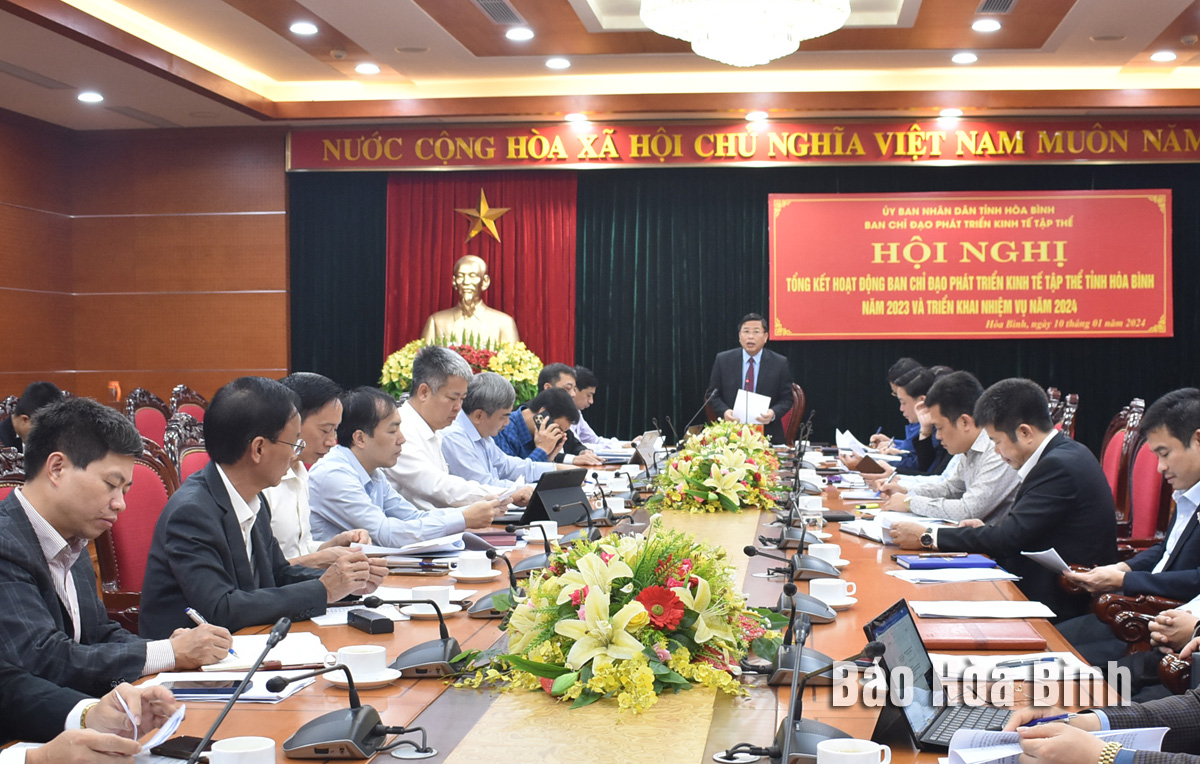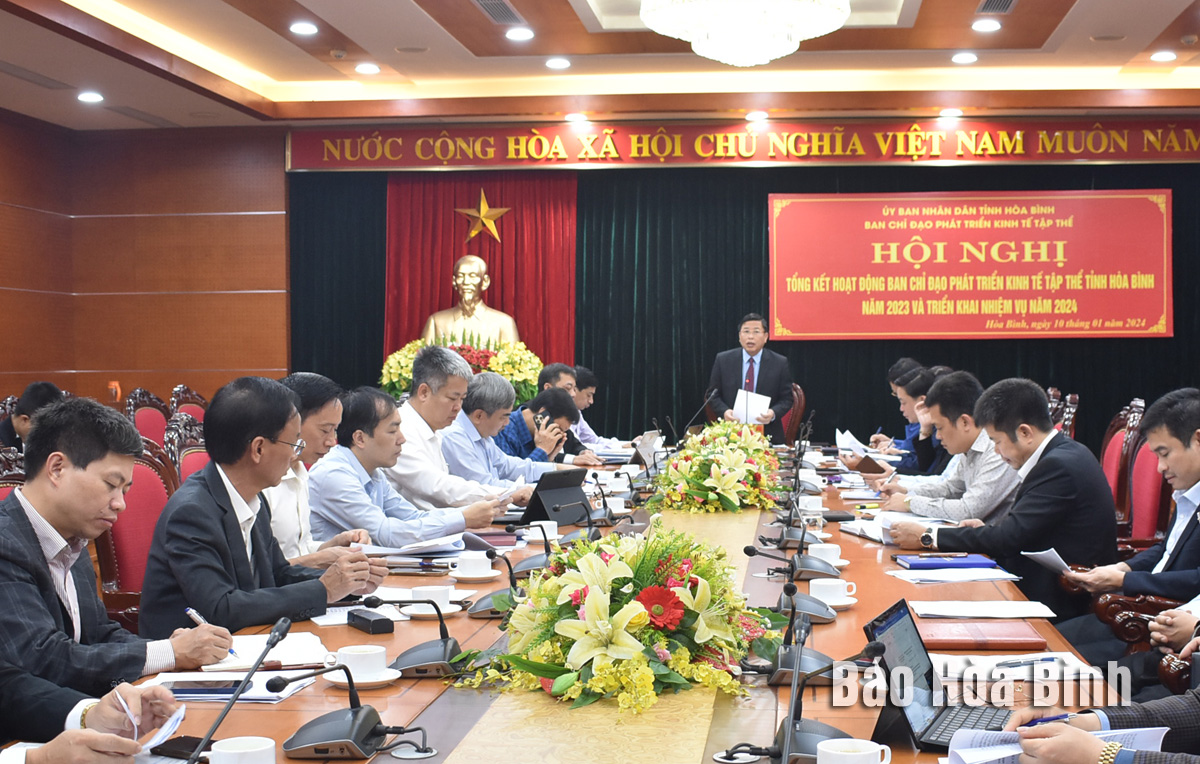
The Steering Committee for Cooperative Economic Development of Hoa Binh province organised a conference on January 10 to review its operation in 2023 and launch orientations and tasks for 2024. The event was chaired by Vice Chairman of the provincial People’s Committee Dinh Cong Su.
Vice Chairman of the provincial People’s Committee Dinh Cong Su speaks at the
conference.
In 2023, the Steering Committee for Cooperative Economic Development strictly
maintained operations in accordance with working regulations. Communications
work was enhanced to raise public awareness of cooperative economic
development.
Training courses were organised to improve the quality of human resources for
cooperatives. As many as 31 cooperatives got loans totaling 16 billion VND
(over 653,000 USD) from the province’s cooperative development support fund.
Up to 70 new cooperatives were established in the year, 75% higher than the set
plan, lifting the total to 758. The average revenue and profit of a cooperative
are estimated at 1.52 billion VND and 164 million VND, respectively.
At the conference, the committee’s members focused their discussion on issues
related to production land, cooperative headquarters, criteria for establishing
new cooperatives every year, capital sources, and developing sustainable raw
material areas.
In 2024, the committee will strengthen its leadership and direction for
collective economic development and provide consultation to the provincial
People's Committee to implement the 2023 Law on Cooperatives and policies on
developing collective economy and cooperatives.
Average revenue of each cooperative and income of regular labourers in
cooperatives are expected to increase by 7% and 4%, respectively. At least 20
cooperative models are hoped to be recognised as typical models in the year.
Speaking at the conference, Vice Chairman of the provincial People’s Committee
Dinh Cong Su called on sectors and the committee’s units to strengthen
leadership and direction for cooperative economic development, thus
contributing to promoting the province’s socio-economic development.
According to data from the Hoa Binh Provincial Party Committee, the industrial production index for the first six months of 2025 is estimated to have increased by 20% compared to the same period last year. This marks the highest year-on-year growth rate for this period since 2020.
In the first six months of 2025, Hoa Binh province’s export turnover was estimated at 1.145 billion USD, marking an 18.11% increase compared to the same period in 2024. Import turnover was estimated at $ 804 million, a 17.15% increase, which helped the province maintain a positive trade balance.
The lives of the ethnic minority farmers in Tan Lac district have gradually improved thanks to the new directions in agricultural production. This is a testament to the collective strength fostered through the professional associations and groups implemented by various levels of the district’s Farmers’ Union.
With the motto the "product quality comes first,” after nearly one year of establishment and operation, Muong village’s Clean Food Agricultural and Commercial Cooperative, located in Cau Hamlet, Hung Son Commune (Kim Boi district), has launched reputable, high-quality agricultural products to the market that are well-received by consumers. The products such as Muong village’s pork sausage, salt-cured chicken, and salt-cured pork hocks have gradually carved out a place in the market and they are on the path to obtaining the OCOP certification.
In the past, the phrase "bumper harvest, rock-bottom prices" was a familiar refrain for Vietnamese farmers engaged in fragmented, small-scale agriculture. But today, a new spirit is emerging across rural areas of Hoa Binh province - one of collaboration, organisation, and collective economic models that provide a stable foundation for production.
Maintaining growing area codes and packing facility codes in accordance with regulations is a mandatory requirement for agricultural products to be eligible for export. Recently, the Department of Agriculture and Environment of Hoa Binh province has intensified technical supervision of designated farming areas and packing facilities to safeguard the "green passport" that enables its products to access international markets.



